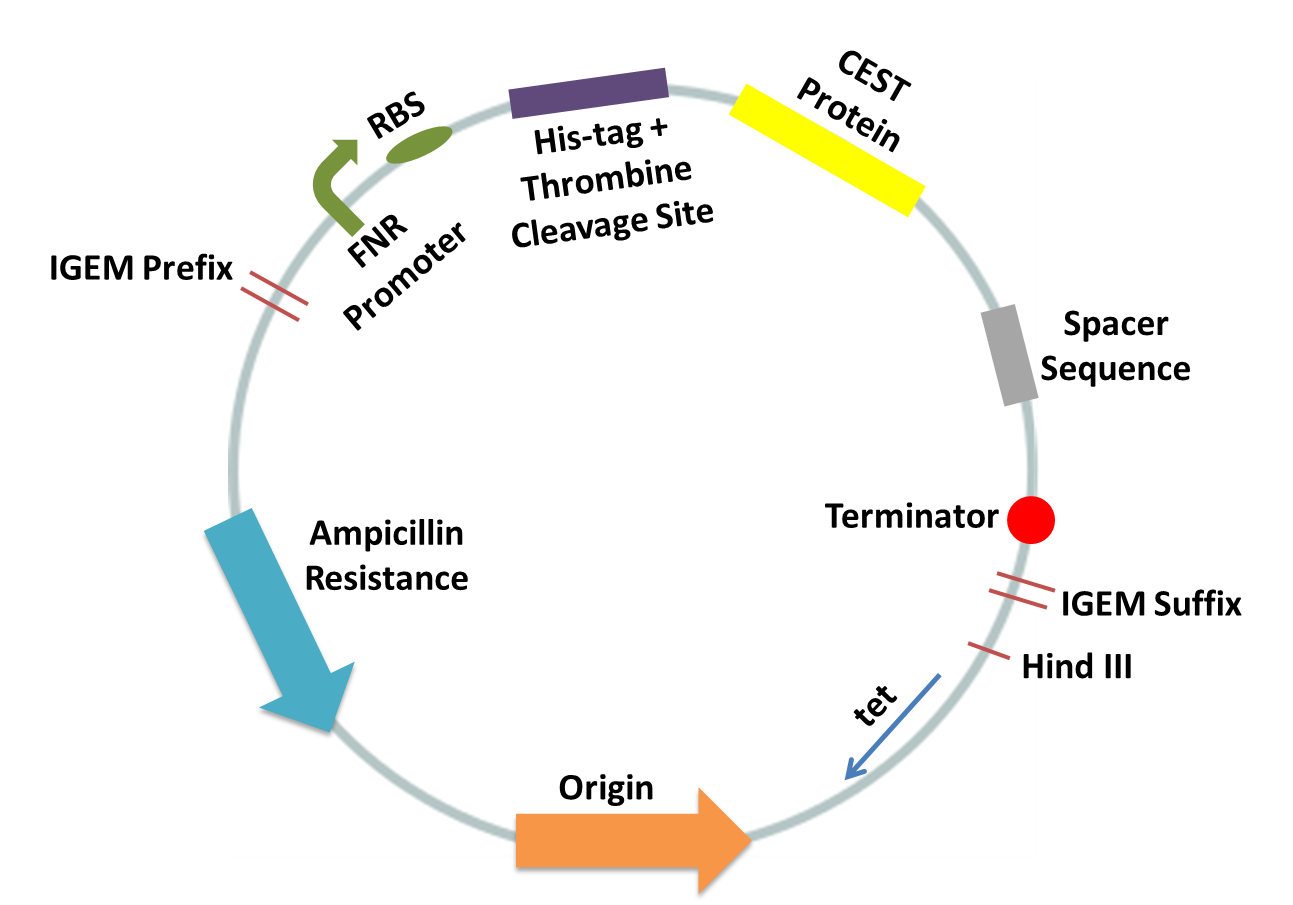Team:TU-Eindhoven/Chasis
From 2013.igem.org
| Line 2: | Line 2: | ||
{{:Team:TU-Eindhoven/Template:MenuBar}} | {{:Team:TU-Eindhoven/Template:MenuBar}} | ||
| - | + | Our device is based on an Escherichia coli K12 strain, MG1655. As observed in figure 1 it is comprised of a series of elements that allow the detection of the tumor region due to an environmental sensor based on oxygen sensing. The device is able to reach the hypoxic region due to the flagella that the E. coli possesses, which in are depicted by the propeller in figure 1. The protein production in figure 1 refers to the CEST proteins that are generated by the bacteria when it detects a hypoxic environment. The light bulb depicted in this graphic illustrates the bacteria's ability to be detected by MRI. The kill switch and the human cell disguise are two essential elements which should be included, in order for the device to be used on for the two applications we proposed. However, at this current stage of development, these elements are not yet incorporated within the device. | |
| - | + | ||
| - | + | ||
{{:Team:TU-Eindhoven/Template:Float | position=right | size=8 }} | {{:Team:TU-Eindhoven/Template:Float | position=right | size=8 }} | ||
Revision as of 20:49, 26 September 2013



Our device is based on an Escherichia coli K12 strain, MG1655. As observed in figure 1 it is comprised of a series of elements that allow the detection of the tumor region due to an environmental sensor based on oxygen sensing. The device is able to reach the hypoxic region due to the flagella that the E. coli possesses, which in are depicted by the propeller in figure 1. The protein production in figure 1 refers to the CEST proteins that are generated by the bacteria when it detects a hypoxic environment. The light bulb depicted in this graphic illustrates the bacteria's ability to be detected by MRI. The kill switch and the human cell disguise are two essential elements which should be included, in order for the device to be used on for the two applications we proposed. However, at this current stage of development, these elements are not yet incorporated within the device.

The current construct can be observed in the figure below. The His-Tag, thrombine cleavage site and the terminator sequence optimize transcription and ultimately expression.

In the future, the chassis should contain :
- Kill switch vector
- Human cell disguise vector
The kill switch vector is constituted by the prodrug Ganciclovir/Herpes Simplex Virus Thymidine Kinase Enzyme system. Including this vector in our device will allow the termination of the bacterial device at any point of the CEST MRI process. This system is explained on detail in the kill switch section of the project tab.
The human cell disguise refers to the alteration that should be induced in the external layer of the bacteria in order to become invisible to the immune system and avoid causing an immune system response. The detailed change that E. coli should endured in described on the application section of the project tab.
 "
"